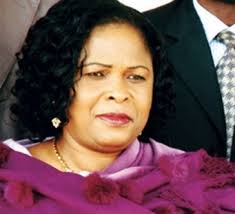Cybercrime does not respect geographical location. It knows no boundaries, religion or nationality. Cyber criminals attack and spread across the whole world in a matter of minutes, sparing no one.
Concerned about the widening and fast-growing cybercrime across the globe, a World Cyber Security Conference was held in Abuja on September 17, 2013, with the theme: “Cyber Insecurity – A Latent Threat to National Security and Economic Development.”
Africa, particularly Nigeria, is growing at a faster rate in technology adoption and consumption, than countries in Europe. Nigeria is one of the top five countries on Facebook and other social media. The flip side of this development is that this has also created room for widespread perpetuation of cybercrimes. Quite recently, for instance, Nigeria was rated as number 59 on the list of cybercrimes locations in the world by the Symantec Quarterly rating for 2013. Needless to say, this is not good news for a country that daily struggles to reconfigure world perceptions about her.
This alarming spate of cyber insecurity had prompted the Director of the Telecommunication Development Bureau of the International Telecommunication Union, Brahima Sanou, during their meeting in Costa Rica, to discuss cyber threats and cyber security in the African region. The essence of these discussions was to address ways and means of stemming this malaise. At this event also, the First Lady of Nigeria, Dame Patience Jonathan, was appointed as ITU’s Child Online Protection Champion.
On her return to Nigeria, the First Lady and her Office instituted and facilitated the World Cyber Security Conference to further emphasise that global collaboration is imperative in addressing the threatening effects on the moral and physical safety of our children as a result of online misuse. She seized the opportunity of this event to appeal passionately to the National Assembly to enact a law that will carry a stiff punishment for all cyber criminals.
Jonathan noted that as many more people join the growing list of Internet users, the advantages and vast benefits that the Internet presents, becomes more apparent. Indeed, the Internet daily commands increased global audience, bringing the world closer and closer together than before. She described the Internet as one of the “greatest inventions of mankind, which has changed the way we communicate, conduct business and socialise.”
Former Israeli Prime Minister, Ehud Barak, who also spoke at the conference, urged governments the world over to join hands to fight the endemics of cybercrime. Barak said in times past, ‘bows and arrows’ were used to fight wars, killing just a target at a time, but today, technology has advanced so much that just a time bomb could destroy thousands of people within a short time. The same thing could be said about cyber crimes – the menace spreads like wild fire, with individuals, corporate bodies and even government mails being hacked practically every second. He concluded by saying that online crime has worse consequences than war crimes, because of the colossal damage it causes.
Some of the participants cited the case of a Nigerian youth, Cynthia Osokogu, who was lured and killed in Lagos, through cybercrime. The National Coordinator of the I-Nigerian Initiative, Ada Stella Apiafi, who described the campaign for cyber-security as timely, said the cyber world and its application should be for Education, Entertainment and Commerce, to harness the great potential we have in Nigeria. Parents, Apiafi affirms, have a pivotal role to play in supervising how and what sites their children visit, bearing in mind that the average Nigerian child is quite intelligent, smart and eager to explore new frontiers.
Others have also pointed out that cybercrime is also very strongly perpetuated with Banking and Electronic Funds Transfers. They urged the conveners of the forum to take steps and position themselves such that the financial institutions will not be so terribly hit by these unrepentant cyber criminals. He said hackers continue to attack accounts of customers. There is an ominous possibility of huge losses if not stopped now, particularly with the introduction of the cashless economy, which itself has its own pains and gains.
Ordinarily, it is expected that parents should teach their children the use of technology, especially telephone usage, but most parents are not as versatile or dynamic in the use of their phones as their children. Which begs the question: who supervises who?! For adults, it is difficult to balance what they do. With children, it is even more difficult.
It is important at this juncture to call on legislators and policy makers to take a critical look on how to protect children and youth from the ills of the cyberworld. Guardians, especially parents, should closely monitor activities of their wards online and even on mobile phones, which have become part of their daily engagements.
The National Assembly should quickly pass into law the proposed bill on cyber security with stringent punishments against violators.
Stellamaris Amuwa wrote from Maitama, Abuja.
Previous ArticleInsurgency: Taming inter-agency rivalry, by Osaze Sunny
Next Article Oboabona happy at Ritzespur


